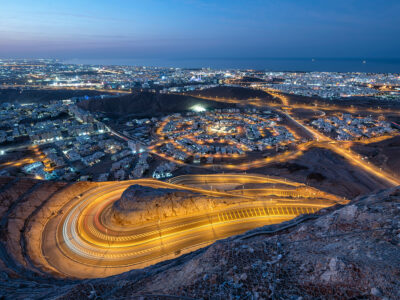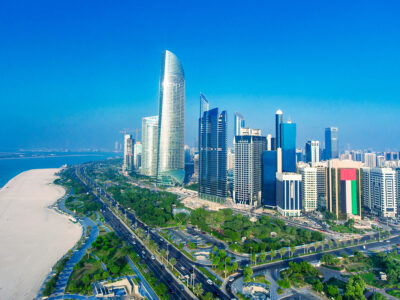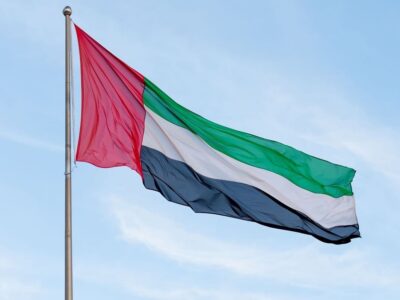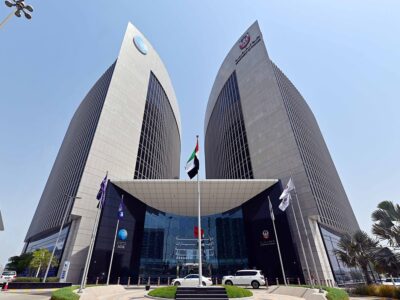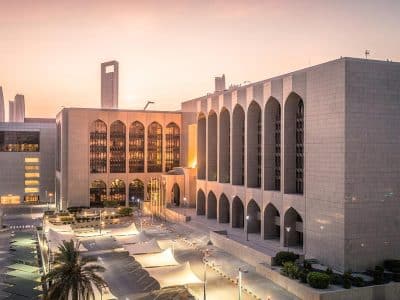Nothing much usually happens in Bani Walid. This small town, located 180km outside Libya’s capital, Tripoli, is known best for a small museum in the city centre, which contains ancient sculpture from nearby archaeological sites.
All that changed at 11pm on Wednesday, 26 January, when a group of 300 locals broke into a new housing development that had been created by Muammar Gaddafi. The project was synonymous with much of the Libyan leader’s 41 year rule: a white elephant built for his cronies and paid for out of the country’s staggering $89bn GDP.
By 1am, the development and its 800 empty luxurious units had been occupied by the protesters. “We have no jobs, no houses, no education and no chance of any future. What else do you expect us to do?” one of the protesters later explained.
A full two weeks before Hosni Mubarak was toppled, the first signs of civil disobedience in Libya had emerged. This week, as Libya lurches on the brink of civil war, many experts are wondering how nobody spotted the warning signs for so long, while fearing the worst for both the country and the likely effects on the global economy.
Yet the facts have been clear for some time. Libya’s huge GDP-per capita ration — thanks to massive oil supplies and a relatively small population of 6.5 million — makes it a rich country on paper, close in wealth to some Eastern European countries. Yet outside Gaddafi and his entourage and cronies, few people have ever seen any of that wealth: unemployment stands at 30 percent, rising to 50 percent amongst the youth population (16-24). Education levels are low and illiteracy rates stand at 20 percent. Nearly a third of all Libyans live below the poverty line — close to 50 percent are unable to afford (or find) standard housing accommodation.
But while Libya descends into chaos, the rest of the globe is watching in fear that the crisis could further destablise an already fragile economic recovery. Libya is the world’s fifteenth-largest exporter of oil, producing 1.8 million barrels per day — with 1.4 million of them exported. An estimated 90 percent of the oil is dug from the eastern side of the country, a hotbed for activism.
That activism has boiled over in the past, with often brutal results. In 1987, nine people were executed by Gaddafi’s regime in Benghazi after they were charged with the murder of a local security official. Their bodies were allegedly dragged through the streets afterwards, in warning to a restive local population. In 2007, around 700 people were arrested after protests following a Danish newspaper’s decision to publish cartoons of the Prophet Muhammed (PBUH). At least 18 people were killed in the eastern region’s biggest city when security forces fired straight into the crowds. Small wonder, then, that Benghazi — home to Libya’s Islamist opposition — has fanned the flames of the country’s revolution.
By 23 February, crude prices were hitting their highest rates since autumn 2008, up to $108 per barrel. “We’re going to start to see an impact on production because all the companies are evacuating,” said Kate Dourian, Platts’s Middle East editor. “We’ve already seen one company stop production. “We don’t really know what’s going on because there’s no communication and everything’s been cut.”
As of Monday last week, Al Nafoora oil field, one of the country’s biggest, was operating with half of its regular staff, and other fields looked to follow suit. “We haven’t seen an impact on exports of oil, but ports have [intermittently] been closed, and one’s remained closed since Monday night,” Dourian said. “There’s pressure on imports because people can’t communicate with Libya.”
The supply and demand balance still seems stable, despite the blackout from one of the world’s major exporters. On February 7, a senior Gulf official told Platts that Saudi Arabia was ready to supply more oil to the market, but only if there was demand from customers. The source described the market as being in “good shape” and that the recent rise in global oil prices to their highest levels in 28 months had not been driven by supply/demand fundamentals. But that was before Libyan protests had gone from the incubator stage to what some officials are calling a full-on massacre.
“It’s going to make the supply and demand balance tight — but it’s not going to change the balance in fundamentals because OPEC is producing a lot of oil,” Dourian added. “Obviously prices will go up. It’s a lot of oil [that will be missing from Libya].”
Should the unrest last the same swift period as neighboring Egypt’s — after a mass exodus at the height of Cairo’s tension, foreign oil companies have resumed operations there – it won’t have a lasting effect on the industry. But if it becomes a drawn-out battle, it becomes a problem for global oil dealers.
However, this revolution has been nothing if not rapid. Part of that has been due — ironically – to Gaddafi’s own longstanding policy of playing off key tribes against each other.
“That exploitation has been a key factor in maintaining Gaddafi’s 42-year rule over the country, for example the Warfella tribe has traditionally provided many security force personnel,” said Gala Riani, an analyst with IHS Global Insight. “Gaddafi’s own tribe, the Ghadafa, is a relatively minor grouping. Any loosening of his extensive patronage network would narrow the base of his regime and potentially seriously threaten his ability to hold on to power.”
With Libya’s biggest tribes, like the Warfella and the Zuwayya, swiftly moving to shun the country’s leader, large swathes of the desert nation were effectively lost almost in a stroke.
“If it’s going to be a short term issue, there’s a lot of oil right now – Saudi Arabia could ramp up [production] very easily, and could do as much as 4 million” barrels per day,” said Platts’ Dourian.
“People don’t think the oil price could go up much further, but it’s difficult to predict because nobody really knows what’s going on inside. But you’ve also got tensions in Iran and OPEC member Algeria, and that’s adding to the geopolitical risk factor in the oil price.”
The latest democracy domino to fall in North Africa may be the most complicated — and resound the loudest with petroleum, the region’s most lucrative industry. Global markets are closely monitoring not just the humanitarian crisis but the state of Gaddafi’s government. Should it appear that the country has fallen into a state of lawlessness – and should foreign oil operations there keep at a standstill – other countries, including Saudi, will need to step in to balance the supply.
Representatives from oil-producing nations met in Riyadh last week to discuss their fears and contingency plans. The Saudis took the lead, pushing fellow OPEC members to help cover any disruption in the light sweet crude flow. “OPEC is ready to meet any shortage in supply when it happens,” Saudi oil minister Ali Al Naimi told the New York Times.
Beyond what it will do for the global oil industry, a shutdown of foreign companies’ operations and a crash in production would decimate the fragile local economy. Right now, it depends almost exclusively on revenues from the oil sector. The West’s most sought after oil — light sweet crude – totals about 95 percent of export earnings, 25 percent of the overall GDP and 80 percent of government revenue.
In the past five years, Libyan officials made progress on economic reforms, part of a broader campaign to reintegrate the country into the international fold. These efforts will be unraveled if violent unrest continues more than a few weeks. Libya’s re-integration plans gained momentum the UN lifted sanctions in September 2003, and as Libya announced in December that it would abandon globally-maligned programmes to build weapons of mass destruction.
The process of lifting US unilateral sanctions began in the spring of 2004 and all were removed by June 2006, helping Libya attract greater foreign direct investment, especially in the energy sector. It was a huge step for the country, which had been shunned for decades by global officials due to its terrorist links and anti-US government.
Now all that progress is facing a major back slide. Companies including Norway’s Statoil, which closed its Tripoli office, are taking no chances. Italian company Eni, the largest foreign oil entity in Libya, has been operating in the country since 1959. It too began evacuating non-essential personnel.
Libya’s long road to diversifying and liberalizing its oil-dependent, socialist-oriented economy has seen baby steps — application for WTO membership, the reduction of some subsidies, and plans for privatisation — which had been laying future groundwork for Libya’s transition to a market-based economy.
The non-oil manufacturing and construction sectors account for more than 20 percent of GDP and include the production of petrochemicals, iron, steel, and aluminum. But due to a dry climate and bad soil, agriculture options are limited and Libya is forced to import about 75 percent of its food.
Whichever way you turn, the outlook for Libya is not good. Even if Gaddafi manages to cling to power, retaliation against foreign companies whose governments have queued up to lambast the dictator would be heavy.
“For a country so dependent on state institutions—including for banking and other services — this will have a serious impact on economic life,” said IHS Global Insight’s Riani. “In the longer term, even though Libya has always been considered a somewhat problematic business and regulatory environment, there will be concerns that should Gaddafi fall from power, the resultant power vacuum will make for an even more unstable investment climate.”
Last week, as hundreds of its citizens lay dead in the street and the bulk of its economy came to a standstill, Libyans saw just one thing continue as normal — food imports. Only this time, they were coming via convoy from unlikely allies in Egypt, who knew exactly how they felt.
Who could follow Gaddafi? Meet his potential successors
Shokri Ghanem — The former prime minister and current chairman of Libya’s National Oil Corporation is still in Tripoli, despite rumors he’d fled. It’s a good thing, too, as he’s the top contender to take over from Gaddafi, should the dictator fall. Ghanem has experience dealing with major foreign players — rare for a Libyan official — including last summer’s high-profile UK meeting with BP head Tony Hayward, in which he discussed furthering the British oil giant’s interests in Libya. One of OPEC’s most respected ministers, he is a tireless proponent of collaboration between state-owned big oil and the private sector, including companies like Chevron, Total and ENI. Ghanem has also expressed a desire to see his own state-run company, NOC, go public, giving him a platform from which to influence the global oil markets.
Ibrahim Abdulaziz Sahad — The head of National Front for Salvation of Libya, the country’s decades-old opposition party, Sahad is a graduate of the Libyan Military Academy, where he was valdeictorian. Climbing the military ranks until becoming candidate for captain in 1970, he completed tours in the UK and US along the way. Alienated after Gaddafi’s coup in 1969, he was sent on diplomatic missions to Jordan, the U.S., UN, Argentina and was Director for Political Affairs of the Americas at the Libyan Ministry of Foreign Affairs. One of the founders of the NFSL, he was quickly appointed political commissioner and then became the second deputy to the party’s secretary general. Assuming the reins in 2001, he was re-elected in 2007.
Hadi Shalluf — A French-Libyan lawyer exiled from his home country, Shalluf has been a de-facto opposition leader from outside the country’s borders. For years he has been agitating on behalf of the Libyan people, writing open letters to the UN and Kofi Annan. His father was killed by the regime, sparking his activism. Most recently in Paris, he watched scratchy video coming out of Libya and said Gaddafi was in trouble — “this will spread all across the country and there will be heavy fighting leading to bloodshed which will further aggravate the people… Gaddafi will either be arrested or forced to escape.” He has been sharp in condemning both Gaddafi, who he said was perpetuating “genocide” against his people, and the European Union for its stance.
